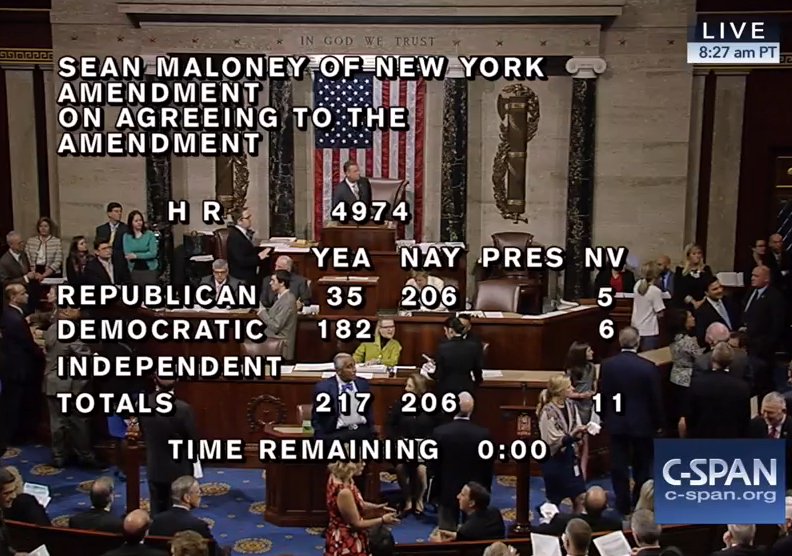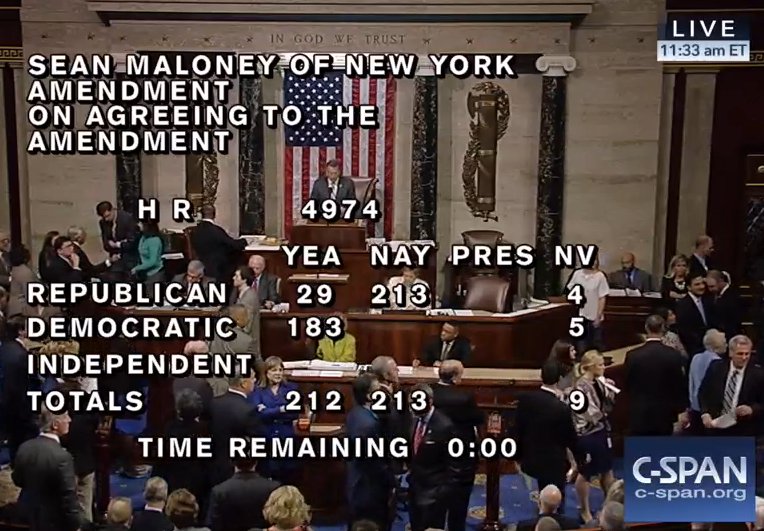It can be hard and scary to be visible. A lot of queer people spend much of their adolescence, and sometimes much of their lives, hiding a big part of their identity. For me, even now that I'm fully and totally out, I'm faced with a lot of daily situations in which I have to make a choice between hiding a part of myself and coming out to a person I don't know very well. Sometimes I don't have the energy, sometimes I genuinely feel it's none of their business, and sometimes I feel I have reason to fear for my safety.
Gay bars are important because they're one of the only spaces where I know for sure that I don't have to feel unsafe being gay. Unlike everywhere else in the world, in a gay bar, my sexual orientation is the default, and I don't really have to explain myself to anyone. That's why this horrific hate crime cuts so deep. Gay people were murdered in a place where they felt safe, and it has just reinforced for me that, as a gay woman, most places in this world are not safe. This danger is further magnified for people of color, trans and gender non-conforming people, and people of different religions.
After the shooting, I was feeling hopeless for a variety of reasons. I was frustrated that people didn't seem to be acknowledging the nature of the hate crime. I was worried that this shooting would be used as another excuse for Islamophobia. I was outraged at Republican politicians tweeting that their thoughts and prayers were with the victims, when their past actions had facilitated the societal homophobia that made a man think it was ok to murder people for being gay.
I was exhausted by the rhetoric calling for better gun control. We've had so many mass shootings in this country that I had no reason to think that this one would motivate Congress to pass an assault weapons ban, or close the gun show loophole that allows people to buy guns at gun shows without submitting to a background check. In fact, I became frustrated that people were talking about gun control because it felt like such a futile conversation.
And then on Wednesday at 11am, Senator Chris Murphy from Connecticut started speaking on the Senate floor, and with the help of other Senators, specifically Senator Cory Booker from New Jersey, held the floor for 15 hours and renewed my faith in government.
Before I go into the details of this specific filibuster, I am a political process blog at heart, and thus I have to explain what a filibuster is. In Congress, the vast majority of bills can be debated on the floor. In the House, there are time limits for how long people can speak on a bill, usually between one and five minutes. The House is allowed to set time limits for debate overall, limiting consideration on a specific bill to forty minutes total. The Senate, illustrious and elitist body that it is, has no such time limit. Usually, Senators keep their speeches short, and debate can move fairly quickly. But individual Senators have the right to speak "as long as necessary" on any issue.
 |
| Yes, I know this is the one we're all thinking about. |
 |
Unlike some places (Texas being a notable example where people cannot stray from the topic of discussion even once) United States Senators can talk about more than just the bill they are delaying, or the cause they care about. Senator Long, in his fifteen hour filibuster, read recipes, analyzed the constitution, and read Shakespeare. Senators can also yield for a question, without losing their right to the floor. While a Senator can yield to anyone for a question, it's common practice to only yield to members in your own party who are on your side, so you know that they won't filibuster your filibuster, and monopolize the floor themselves.
 |
| The Texas rules are hardcore, and merit a separate post, but we don't have time for that so enjoy Wendy Davis. |
During a filibuster, the only things you can drink are water and milk (I'm really not sure why you can drink milk, but this post is already so long, that's going to have to be a question for another day). You can't eat anything, except the candy from the candy desk on the Senate floor. Yes, that's right, there is a desk on the Senate floor that is full of candy, but you have to walk all the way over to Senator Mark Kirk's (R-IL) desk to get it.
 |
| This is a real desk in the real Senate. |
When does a filibuster end? Some end when the person can't talk anymore. Some can end when other Senators get 60 people together for a cloture vote, to end debate on the subject, effectively killing a filibuster. Or they can end when the Senator gets what they want.
 |
The actions of Senator Murphy, Senator Booker, many members of the Democratic caucus, and Senator Tammy Baldwin, the only LGBTQ Senator, who gave a moving tribute to the victims of the attack, gave me hope that had been lost in the wake of the devastating hate crime in Orlando.
 |
| Senator Tammy Baldwin (D-WI) during the filibuster |
"After Dade County, I walked among the angry and
the frustrated night after night and I looked at their faces. And in San Francisco, three days before Gay Pride
Day, a person was killed just because he was gay. And that night, I walked among the sad and the frustrated
at City Hall in San Francisco and later that night as they lit candles on Castro Street and stood in silence,
reaching out for some symbolic thing that would give them hope. These were strong people, whose faces I
knew from the shop, the streets, meetings and people who I never saw before but I knew. They were strong,
but even they needed hope.
And the young gay people in the Altoona, Pennsylvanias and the Richmond, Minnesotas who are coming out
and hear Anita Bryant on television and her story. The only thing they have to look forward to is hope. And
you have to give them hope. Hope for a better world, hope for a better tomorrow, hope for a better place to
come to if the pressures at home are too great. Hope that all will be all right."
As we all, but specifically we in the LGBTQ community, work for a better world and fight for what's right, we must also try to find the symbolic things that will give us hope. They won't be the same for everyone, but for me, someone who has put a lot of energy and faith in the government, watching this filibuster, watching my Senators speak so passionately in favor of gun control and in support of LGBTQ people, and watching the first openly lesbian Senator speak about the pain she was feeling from the attack, gave me hope. I hope it does the same for all of you.
























